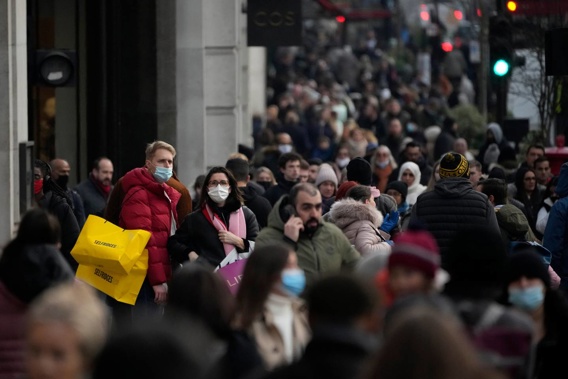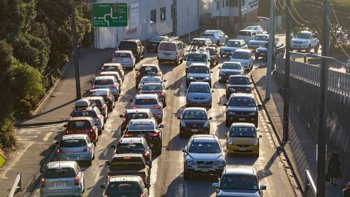
The World Health Organisation has warned that the Covid-19 Omicron variant poses a "very high" global risk and warned it is likely to spread further across the world.
The UN health agency said the Covid strain first discovered in southern Africa was a "highly divergent variant with a high number of mutations … some of which are concerning and may be associated with immune escape potential and higher transmissibility".
"The likelihood of potential further spread of Omicron at the global level is high," WHO said.
There have been no deaths connected with the Omicron variant so far. However, WHO said even if Omicron proves to be less deadly than previous strains, if it spreads more easily then it will spark more cases and lead to more deaths.
"If another major surge of Covid-19 takes place driven by Omicron, consequences may be severe," it said, concluding that "the overall global risk related to the new VOC [variant of concern] Omicron is assessed as very high".
WHO Director-General Tedros Adhanom Ghebreyesus said the spread of the Omicron variant will be a "test of our collective ability to respond to future pandemics".
Speaking at the start of a three-day World Health Assembly conference, the WHO chief said "courageous and compassionate leadership" and an "unshakeable commitment to solidarity" will be fundamental in ending the pandemic.
Dr Tedros criticised the inequitable distribution of vaccines, adding that access to vaccinations for all countries was necessary to limit the spread of the virus and its mutations.
"The more vaccine inequity persists, the more this virus will spread in ways we cannot predict or prevent," Tedros said. "We are all in this together."
WHO said while scientists work to determine how effective vaccines are against the new variant, countries should accelerate Covid vaccination, especially among vulnerable populations who have yet to receive any jabs.
However, it also cautioned against imposing travel bans, saying that blocking travel from countries where new variants are first spotted is unfair.
"With the Omicron variant now detected in several regions of the world, putting in place travel bans that target Africa attacks global solidarity," said WHO regional director Matshidiso Moeti.
South Africa has complained it is being "punished" with air travel bans for first detecting the strain.
A growing list of countries have already imposed travel restrictions on southern Africa, including Britain, Indonesia, Kuwait, the Netherlands, Qatar, Saudi Arabia and the United States.
Japan is the latest country to say it will close its borders to foreigners.
In Australia, under federal measures, travellers entering the country from South Africa, Lesotho, Botswana, Zimbabwe, Mozambique, Namibia, Eswatini, Malawi, and the Seychelles in the last 14 days have been ordered into hotel quarantine.
Omicron reaches North America
Meanwhile, the Omicron variant has been detected in Canada, the country's health minister said.
Two cases in Ontario were confirmed on Sunday by Health Minister Jean-Yves Duclos.
The variant has also been found in Australia, Israel, Botswana, the UK and France since it was first detected in South Africa.
Dr Anthony Fauci, the US' top infectious diseases expert, said he would not be surprised if the Omicron variant was already in the United States, too.
"We have not detected it yet, but when you have a virus that is showing this degree of transmissibility ... it almost invariably is ultimately going to go essentially all over," Fauci said.
South Africa, where the Omicron variant was first discovered, could see daily infections treble this week.
Epidemiologist Dr Salim Abdool Karim said health monitors reported over 2800 new infections on Sunday, up from a daily average of 500 in the previous week and 275 the week before.
"I am expecting we will top over 10,000 cases by the end of the week per day [and] see pressure on hospitals within the next two, three weeks," he said.
- by Mathew Murphy, news.com.au
Take your Radio, Podcasts and Music with you








